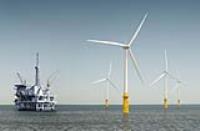 Add My Company
Add My Company
Sign In
Oil & Gas and Renewables: Future Partners?
04-09-2019

Recently, the Oil and Gas Authority (OGA) announced their intentions to use renewable energy to power offshore oil and gas operations in the North Sea. The news of this substantial project follows the first carbon dioxide appraisal and storage license granted by the OGA and the launch of a new Carbon Capture, Usage, and Storage (CCUS) Advisor Group in the UK. While this comes as a surprise to many since the oil and gas and renewable energy sectors have long been considered rivals, this announcement holds significant promise. It symbolizes a positive shift towards renewable energy and cooperation rather than resistance by the oil and gas sector.
The OGA is working towards two main goals; the first is to support the economic recovery of the oil and gas sector, while the second is aimed at supporting a transition towards renewable energy. This £900,000 project will investigate the required energy sources and potential storage solutions for a low carbon economy.
A few of the energy integration objectives include the following:
Alternative Platform Power: To reduce costs and emissions, the project will look into connecting offshore oil and gas platforms to an alternative power source such as an offshore windfarm. When compared to platform power genera on, the shift has the potential to extend the lifespan and subsequent productivity of each platform.
Shared Infrastructure: The project will also investigate the potential to share infrastructure. For instance, the gas produced from offshore platforms to generate electricity would be transported to the shore through shared infrastructure with wind farms. This would improve the economics for both sectors and enable future developments.
Carbon Capture & Storage: Existing offshore oil and gas infrastructure will also be considered as a means to transport and store carbon dioxide, further improving the economics of operation on both sides.
Hydrogen Production: Repurposing offshore oil and gas platforms and pipelines will also be considered as a means to enable production and transportation of hydrogen for domestic heating and power.
North Sea Power Sta on: Looking towards the future, if the oil and gas and renewable sectors cooperate and share resources, there is a massive potential to create a power hub in the North Sea. There is the potential for large scale electricity and hydrogen production from wind and opportunity for carbon and energy storage.
Although the growing renewable sector has traditionally been considered a threat to the oil and gas economy, there is a real opportunity for growth here. As renewables aim to move offshore, the expertise of oil and gas engineers will be invaluable. The oil and gas sector can shorten the renewable development process by sharing their expertise in complex operations and marine environments. The oil and gas sector also stands to benefit from the relationship as current low activity levels and subpar pricing can be par ally offset through sharing infrastructure with the renewable sector. For instance, existing offshore operations would be used for both oil and gas and wind applications, improving energy efficiency for both sectors.
While many worry that a burgeoning renewable sector will stomp out the oil and gas sector, fossil fuels will not completely disappear in the near future. Globally oil, gas, and coal continue to account for over 85% of power. This means there is time to adapt and partnering with the renewable sector may be the key to surviving this transition. Only time will tell how such a relationship plays out and we’re interested to hear what the industry experts have to say about this at the Offshore Europe Show this week.
For more information on Oil & Gas and Renewables: Future Partners? talk to KTR U.K. Ltd
Enquire Now
List your company on FindTheNeedle.

